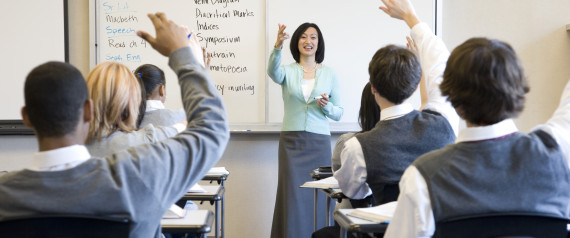Nearly half of state schools in England are guilty of contributing towards gender stereotyping, with few bothering to tackle the gender bias of subjects such as maths and physics, researchers have claimed.
Out of the country co-ed secondary schools, 49% are strengthening the gender divide, with just 19% actively bridging the gap by explaining the universal appeal of typically "boy" or "girl" subjects, an Institute of Physics (IOP) study found.
The group analysed pupils' transition from GCSE to A-level, where students are invited to pick a small handful of subjects to study from age 16 to 18. Their research, published under the title Closing Doors, found gender bias in six subjects.
Maths, economics and physics are traditionally male-dominated and biology, psychology and English are favoured by girls, the report claims. In response, researchers suggested almost half of all state schools are doing too little to counter the stereotypical reputation of subjects.
Professor Peter Main, director of education and science at IOP, told the BBC: "What we're saying is schools should be doing much more to counter that gender stereotyping so that when pupils make their choices for A-level they do so with a level playing field.
"We're not saying pupils should chose subjects they don't want to do, but what we are saying is that schools should do their best to counter these gender-stereotyping effects.
"Forty-nine per cent (of schools) are making it worse, 81% are maintaining the national figures, so it's possibly even more severe. I don't think there is any school that's sitting down, saying 'Let's create gender stereotypes'. I don't think that's true at all.
"I think what is happening is that pupils are being subjected to external factors and schools are just not putting the effort in to counter these factors. A good start, in fact, would be for the schools to get their figures - to look at their own statistics - and set themselves targets that might work in future."
He added: "Schools that stop teaching at GCSE are much worse at countering gender stereotypes than those that teach A-level and continuing until 18.
"It's going to take whole-school initiatives to overcome these biases. We found that where a school is good at overcoming an imbalance in one subject, they are usually good at doing so in all the other five subjects.
"And, although the national picture is dismal, there is a silver lining in that some schools have demonstrated that they have been able to overcome these barriers."
Original Article
Source: huffingtonpost.co.uk
Author: The Huffington Post UK/PA
Out of the country co-ed secondary schools, 49% are strengthening the gender divide, with just 19% actively bridging the gap by explaining the universal appeal of typically "boy" or "girl" subjects, an Institute of Physics (IOP) study found.
The group analysed pupils' transition from GCSE to A-level, where students are invited to pick a small handful of subjects to study from age 16 to 18. Their research, published under the title Closing Doors, found gender bias in six subjects.
Maths, economics and physics are traditionally male-dominated and biology, psychology and English are favoured by girls, the report claims. In response, researchers suggested almost half of all state schools are doing too little to counter the stereotypical reputation of subjects.
Professor Peter Main, director of education and science at IOP, told the BBC: "What we're saying is schools should be doing much more to counter that gender stereotyping so that when pupils make their choices for A-level they do so with a level playing field.
"We're not saying pupils should chose subjects they don't want to do, but what we are saying is that schools should do their best to counter these gender-stereotyping effects.
"Forty-nine per cent (of schools) are making it worse, 81% are maintaining the national figures, so it's possibly even more severe. I don't think there is any school that's sitting down, saying 'Let's create gender stereotypes'. I don't think that's true at all.
"I think what is happening is that pupils are being subjected to external factors and schools are just not putting the effort in to counter these factors. A good start, in fact, would be for the schools to get their figures - to look at their own statistics - and set themselves targets that might work in future."
He added: "Schools that stop teaching at GCSE are much worse at countering gender stereotypes than those that teach A-level and continuing until 18.
"It's going to take whole-school initiatives to overcome these biases. We found that where a school is good at overcoming an imbalance in one subject, they are usually good at doing so in all the other five subjects.
"And, although the national picture is dismal, there is a silver lining in that some schools have demonstrated that they have been able to overcome these barriers."
Original Article
Source: huffingtonpost.co.uk
Author: The Huffington Post UK/PA

No comments:
Post a Comment